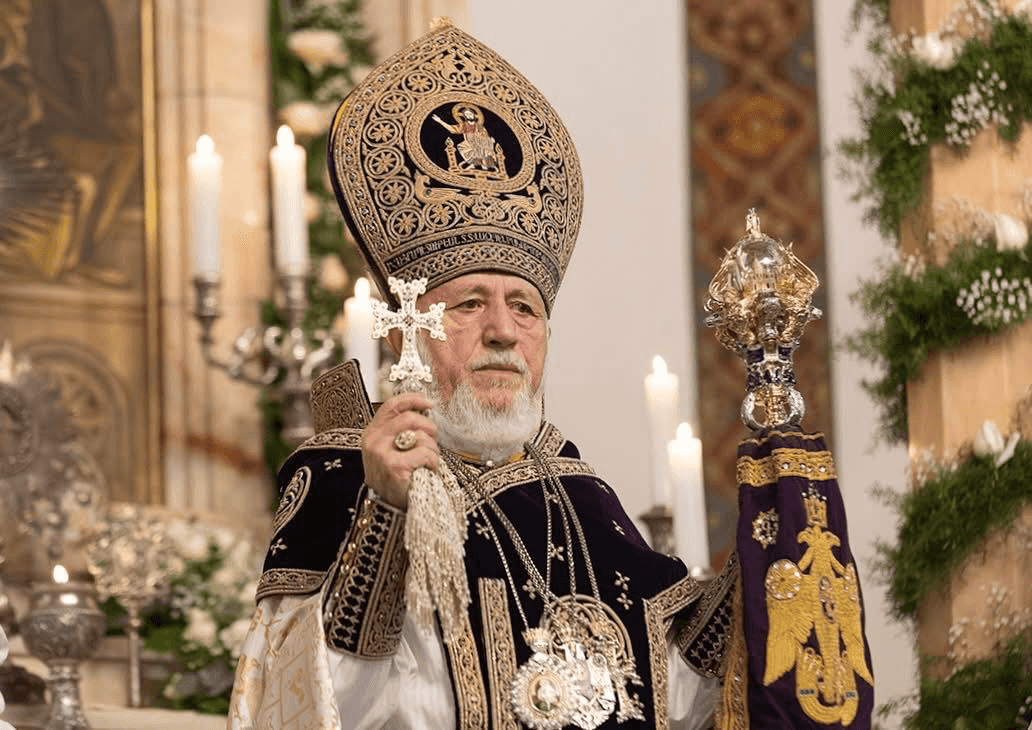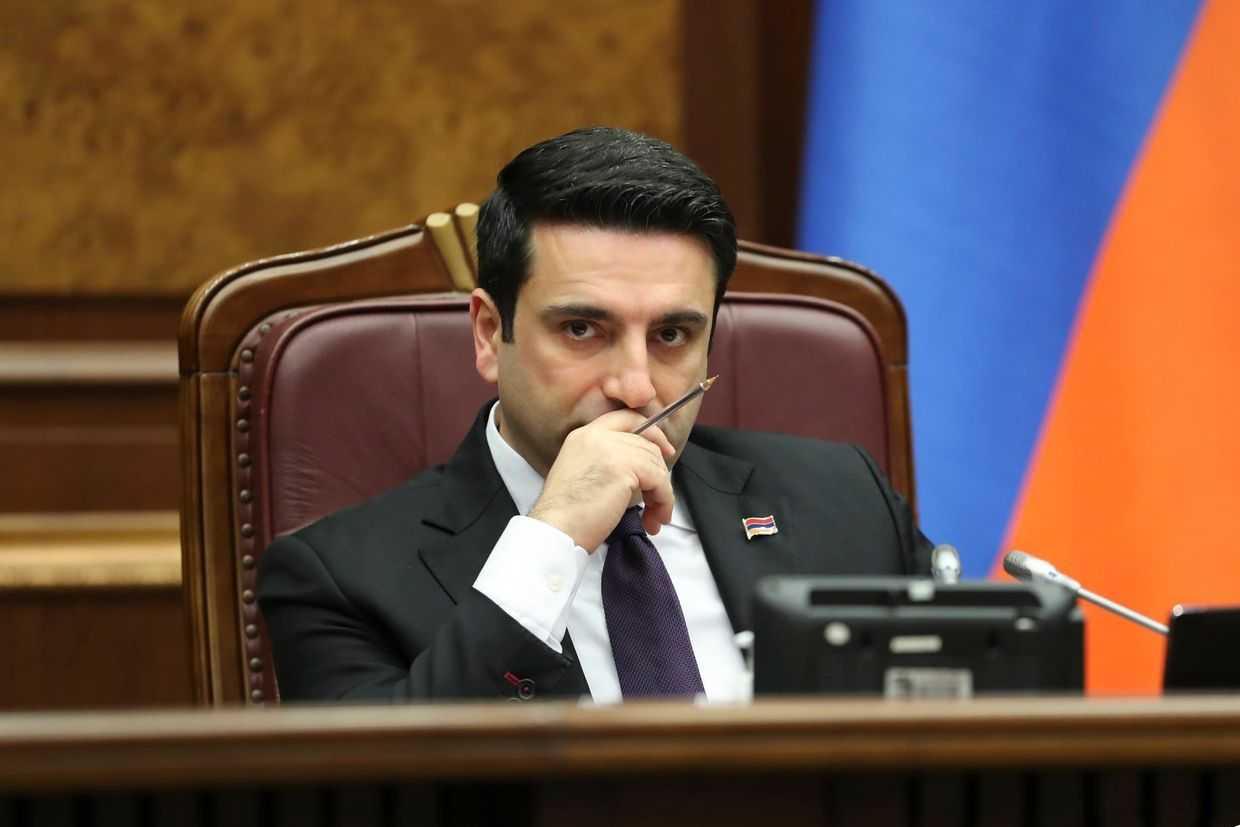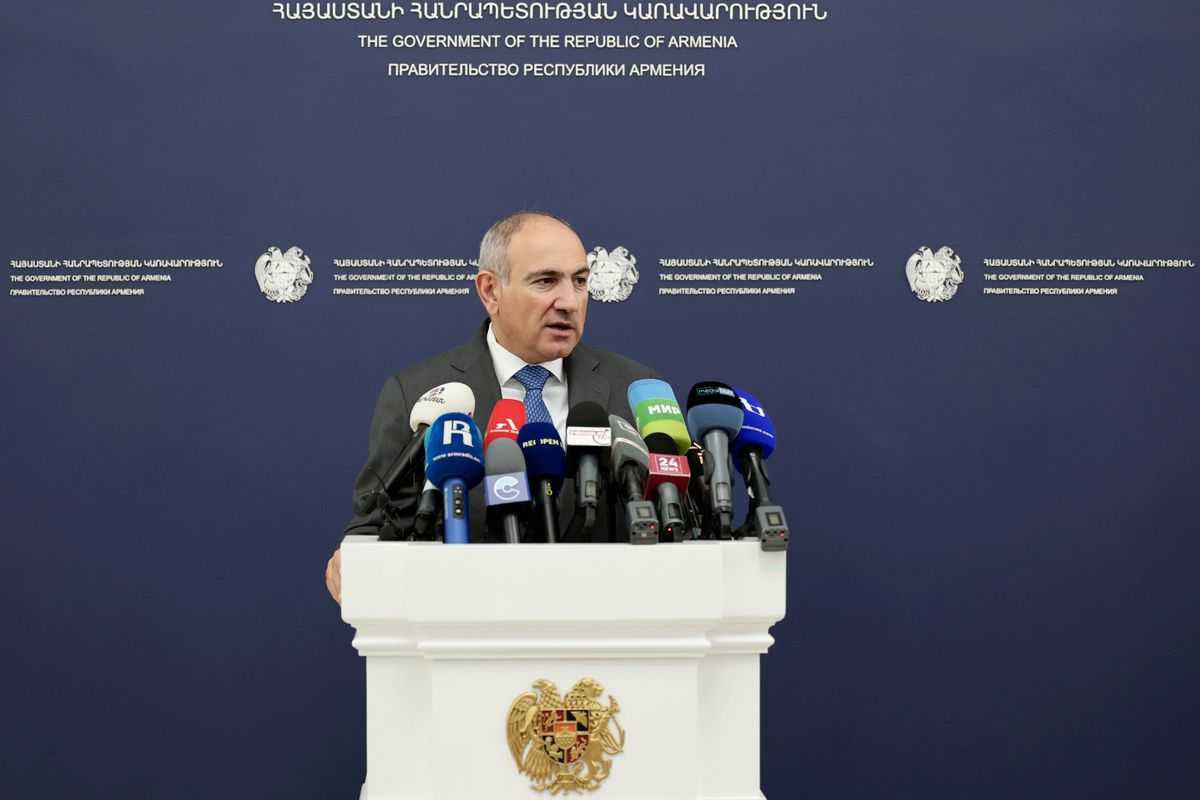
US House Speaker Nancy Pelosi has said that the US Congress condemns Azerbaijan’s ‘invasion of Armenia’, during a congressional visit to Yerevan.
‘Our delegation has been very outspoken in saying that this was initiated by the Azeris and that there has to be recognition of that’, she said in a joint press conference with the president of the Armenian parliament, Alen Simonyan, on Sunday.
US Congressperson Jackie Speier said the US House had already introduced a resolution ‘that will say that we condemn the actions by Azerbaijan, that they must cease and desist.’
Pelosi’s two-day visit to Armenia, which was planned in advance, comes days after the Azerbaijani attacks along much of the border with Armenia. The fighting resulted in at least 213 deaths, including of one civilian, as well as Azerbaijan taking control of several positions within Armenia.
The violence came to an end after Armenia announced that a ceasefire had been brokered, though Azerbaijan has not acknowledged this.
[Read more: Explainer | What happened in Armenia and Azerbaijan on 13–14 September?]
During the visit, Pelosi, who is the highest ranking US official to ever visit the country, appeared to confirm reports that the US had pressured Azerbaijan to cease their attack.
‘As you saw, the immediate response from the United States was to stop the violence and have a ceasefire’, Pelosi said.
Azerbaijan’s Foreign Ministry condemend Pelosi’s comments, saying her remarks ‘distort the situation in the region’.
‘Nancy Pelosi’s speech is a serious blow to the current efforts towards the normalisation of relations between Armenia and Azerbaijan. Such unilateral statements serve not to strengthen the fragile peace in the region, but rather to increase the tension’, the ministry said in a statement on Sunday.
On Sunday, Vyacheslav Volodin, the Russian Duma Speaker, flew to Baku in a visit agreed in July. Russian state media Sputnik also reported on Sunday, citing other unnamed media, that Russia’s Prime Minister would visit Baku in the future.
‘We want to do whatever we can’
During the press conference, Pelosi and her colleagues emphasised Armenia’s security needs, hinting that the US may offer to increase support for the country.
‘Our meeting [with the Armenian Government] again had a particular importance to us because the focus on security following the illegal and deadly attacks by Azerbaijan on Armenian territory’, Pelosi said.
Congressperson Frank Pallone said the US was ‘very concerned about Armenia’s security’.
‘We want to do whatever we can to be more supportive of Armenian security, and that we will work to see what can be done by the US to help with Armenian security.’
The delegation also made several references to the failure of Armenia’s current security arrangements with Russia and the Russian-led Collective Security Treaty Organisation (CSTO), while maintaining that such arrangements were a matter for Armenia to decide.
‘I’ll speak for myself, I’ll say that we understand that Armenia is part of this security arrangement with Russia, but no, we’re not suggesting anything about that’, Pallone said.
‘Your inter-relations with other entities is up to Armenia to decide’, Pelosi said, adding that the US was ‘not telling Armenia what they should be doing.’
‘It is interesting that they were disappointed that they got fact-finders and not protection from that relationship, and we’ll see what happens next’, Pelosi added, hinting at a possible change in the country’s security arrangements.
During Azerbaijan’s attacks last week, Armenia appealed to the CSTO under Article 4 of the organisation’s charter, which states that an attack on any member is considered an attack on all, and obligating members, including Russia, to provide military support.
The CSTO responded to the request for aid by sending a fact-finding mission, with the organisation, as well as the Russian leadership, only calling for calm without singling out either side for criticism.
On 16 September, the Secretary of the Armenian Security Council, Armen Grigoryan, said the country ‘does not have any more hope’ that the defence mechanisms of the treaty would be activated to help Armenia.
‘Democracy vs autocracy’
Pelosi and other members of the delegation appeared to link increasing US support to Armenia with the country’s democratic development. They praised the Velvet Revolution in Armenia as well as the holding of democratic elections.
‘Armenia’s territorial security, Armenia’s sovereignty, Armenia’s democracy is a value in the United States’, Pelosi said, adding that the US should use its leverage to show that Armenia’s democracy was a ‘priority’.
‘We have to enlarge the issue in security’, Speier said. ‘What does security in Armenia mean to regional and global security? What does democracy in Armenia mean to the fight between democracy and autocracy going in the world now? In both cases, it means a great deal, and that’s why when we as Americans talk about how we can be helpful in very discreet ways, we want to be helpful in discreet ways, but we also want to take the democracy and sovereignty of Armenia into a bigger arena when we talk about democracy vs autocracy, security and liberty.’
The delegation also insisted that the US was committed to the peaceful resolution of the Nagorno-Karabakh conflict, while also criticising Turkey’s role in the conflict.
‘We [the US Congress] have tried to hold Turkey responsible, as well as Azerbaijan, for the conflict that exists in Nagorno-Karabakh’, Pelosi said.
Pelosi also praised the recognition of the Armenian Genocide by President Biden, a move that angered Turkey.









